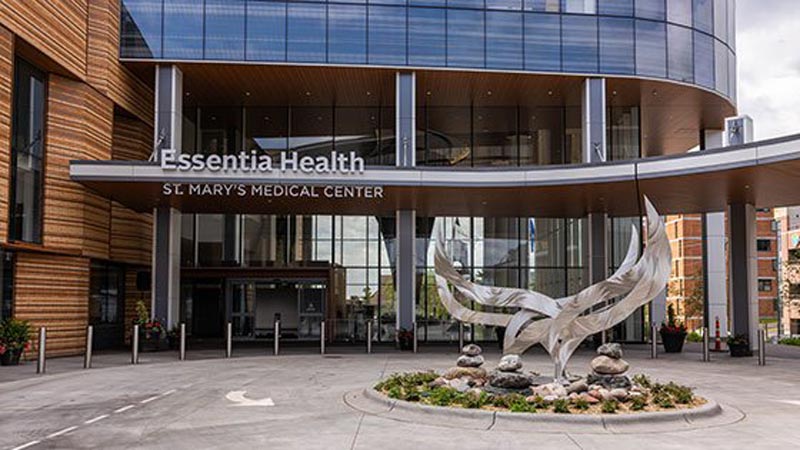Neurosurgery
When you need surgery on your brain or spine, trust the knowledgeable and skilled neurosurgeons at Essentia Health. Our surgeons will guide you in determining the most appropriate treatment for your illness or injury. They use the very latest technology and techniques and treat everything from back pain to brain tumors.
Ask for a Referral
You’ll need a referral from your primary care provider or a specialist for this service.





What's a Neurosurgeon?
A neurosurgeon is a surgeon with specialized training in the diagnosis and treatment of injuries and diseases affecting the nervous system, which includes the brain, spine, and the peripheral nerves.
Conditions Treated
See the full list of conditions we treat, and select a condition to find providers and locations near you.
- Bone disorders
- Brain aneurysm
- Brain cancer
- Brain disorders
- Cerebrospinal fluid leak
- Cervical spine myelopathy
- Degenerative disc disease
- Herniated disc
- Hydrocephalus
- Intervertebral disc disease
- Low back pain
- Meningiomas
- Myelopathy
- Peripheral nerve disorders
- Peripheral nerve tumors
- Pituitary tumors
- Radiculopathy
- Scoliosis
- Spinal stenosis
- Spine deformities
- Spine disorders
- Spine fracture
- Spine osteoarthritis
- Spondylolisthesis
- Stroke
- Trigeminal neuralgia
- Vascular disease
Back & Neck Surgery
Talk to your primary care provider if you experience back or neck pain. If you need a specialist’s care, your doctor will usually refer you to a physical medicine and rehabilitation (PM&R) doctor.
Because Essentia’s PM&R doctors and neurosurgeons work closely together, you can rely on your care team to promptly identify when you may benefit from a surgical consultation for spine surgery.
Trust your Essentia care team to recommend back surgery only after more conservative treatments haven’t provided relief AND if you’re a good candidate for surgical treatment.
Minimally Invasive Spine Surgery
Some surgeries may be able to be treated with the Mazor® robot, a tool designed to perform precise, effective spine surgery including:
- 3D surgery planning: Advanced computer tools use 3D images to help physicians create a detailed surgery plan, which leads to increased precision.
- Intra-operative guidance: Robotics technology guides the surgical tools and implants according to the plan.
- Verification tools: During a surgical procedure, innovative tracking and imaging technology adds an extra measure of safety to ensure all the movements and positioning follow the surgical plan.
This technology is used to treat degenerative disk diseases, scoliosis, herniated disks, stenosis, vertebral fractures and more.
Minimally Invasive Brain Surgery
Rely on us for surgery to treat conditions affecting your brain and surrounding structures. Our team has experience with a wide range of brain surgeries, including minimally invasive or endoscopic procedures.
Endoscopic Brain Surgery
During an endoscopic brain surgery, your doctor uses small, flexible, lighted tubes to see and treat brain tumors. This procedure impacts less healthy bone and tissue, which means you benefit from a lower risk of complications, less pain and scarring, and a faster recovery.
CyberKnife®
Certain types of tumors may be able to be treated with CyberKnife®—a tool used to perform stereotactic radiosurgery (SRS). SRS is a painless, noninvasive treatment using beams of high-dose radiation. If you’re a candidate for SRS, your neurosurgeon will work with the radiation oncology team to coordinate your care.

